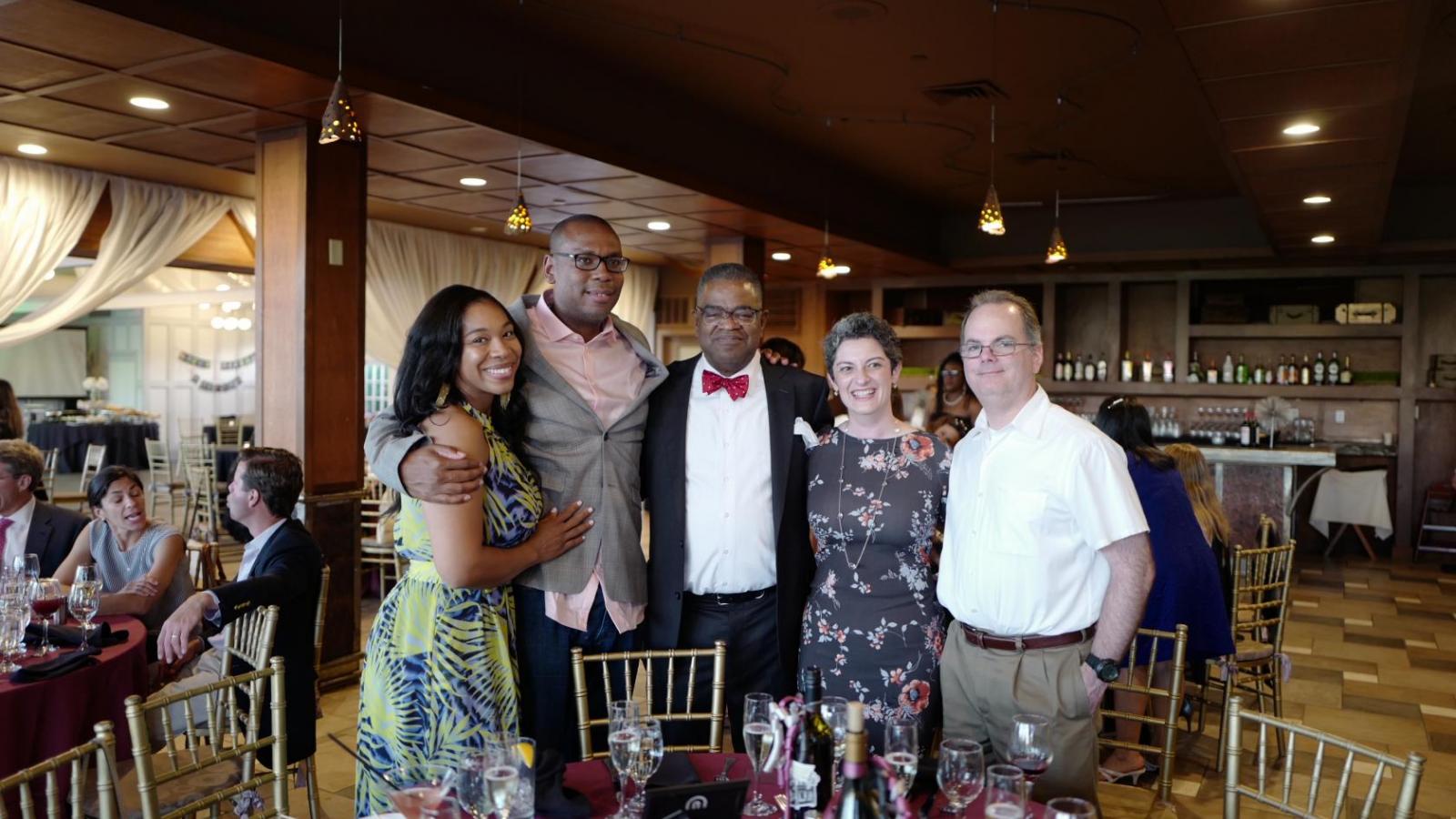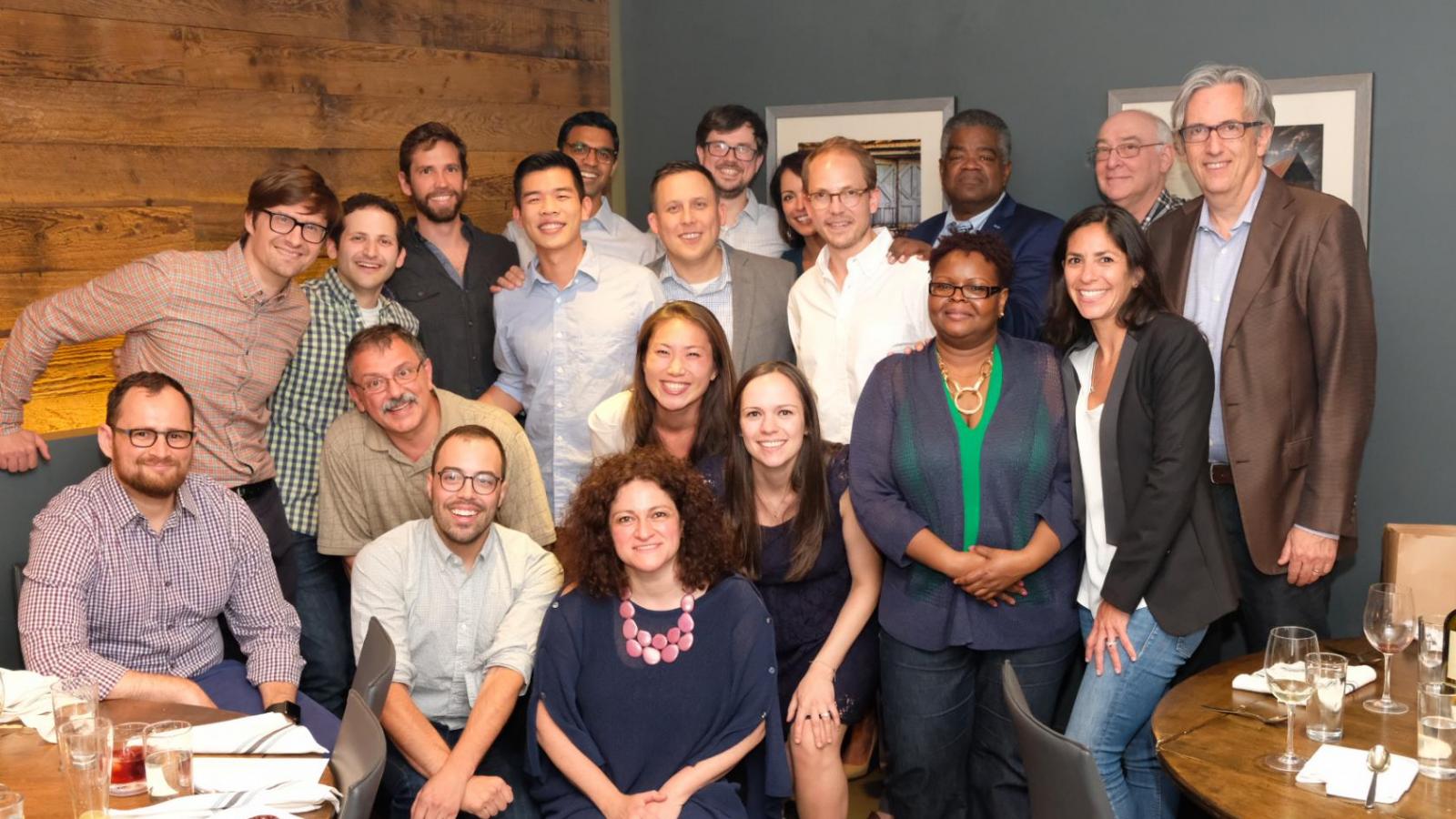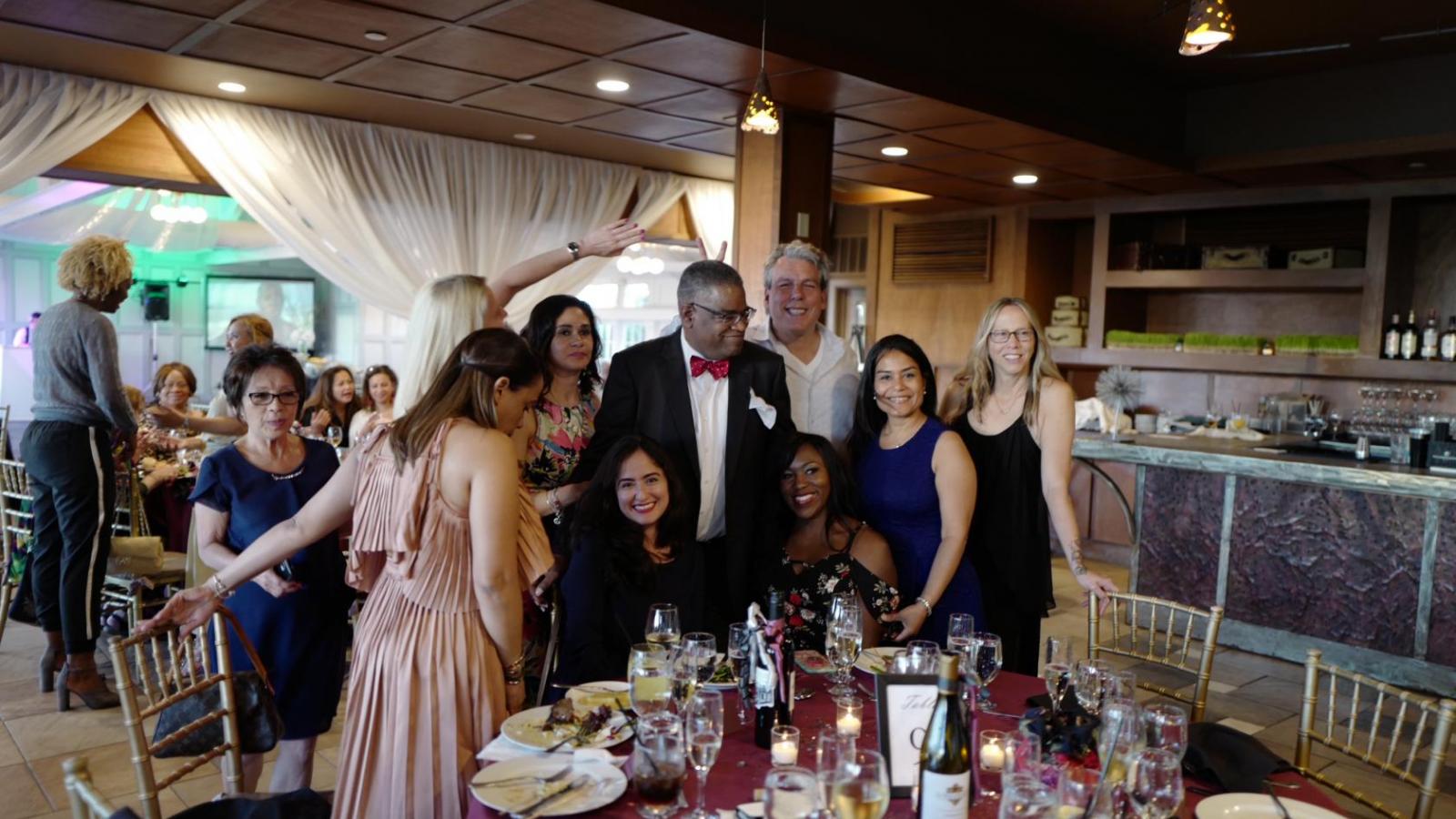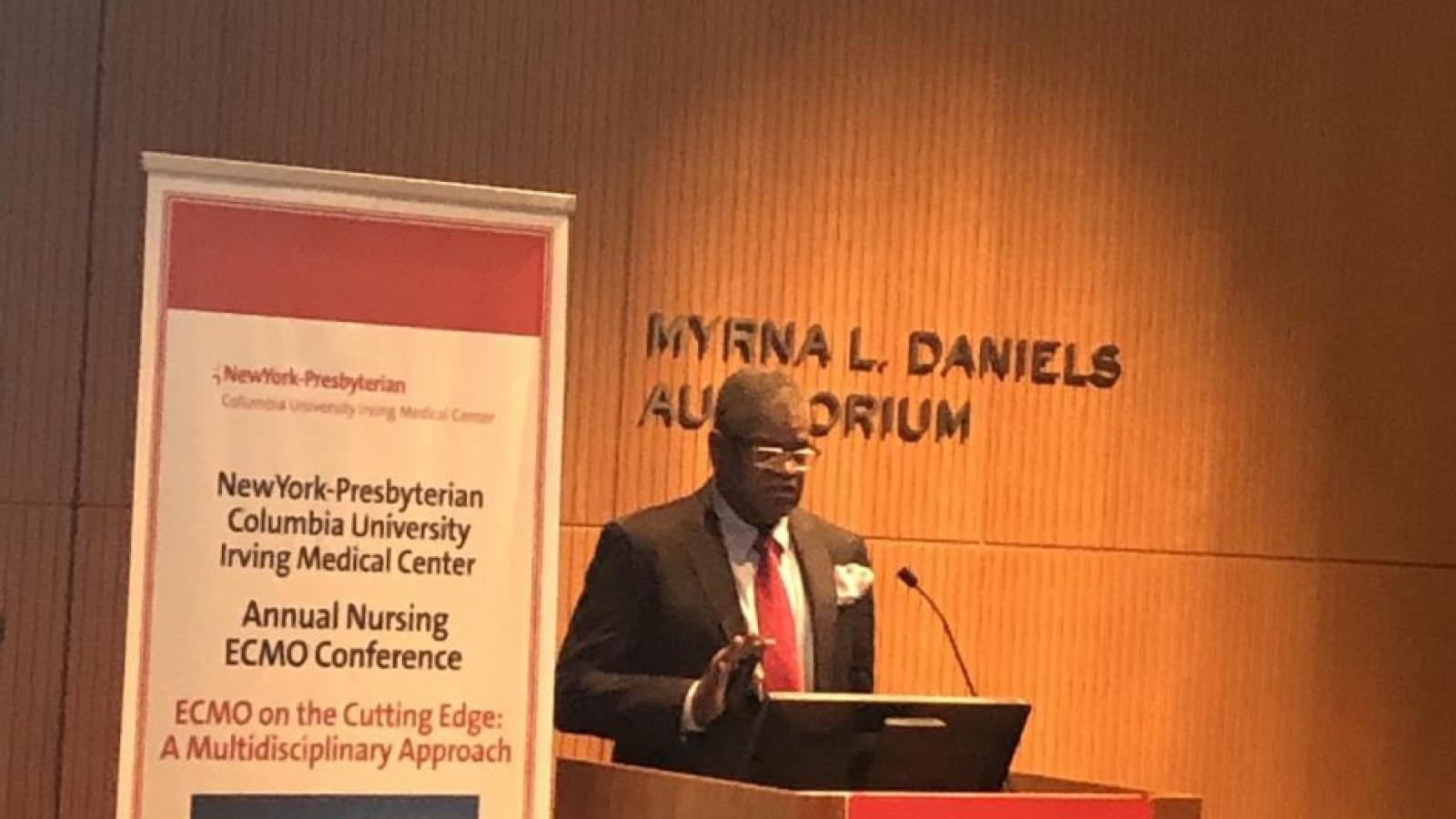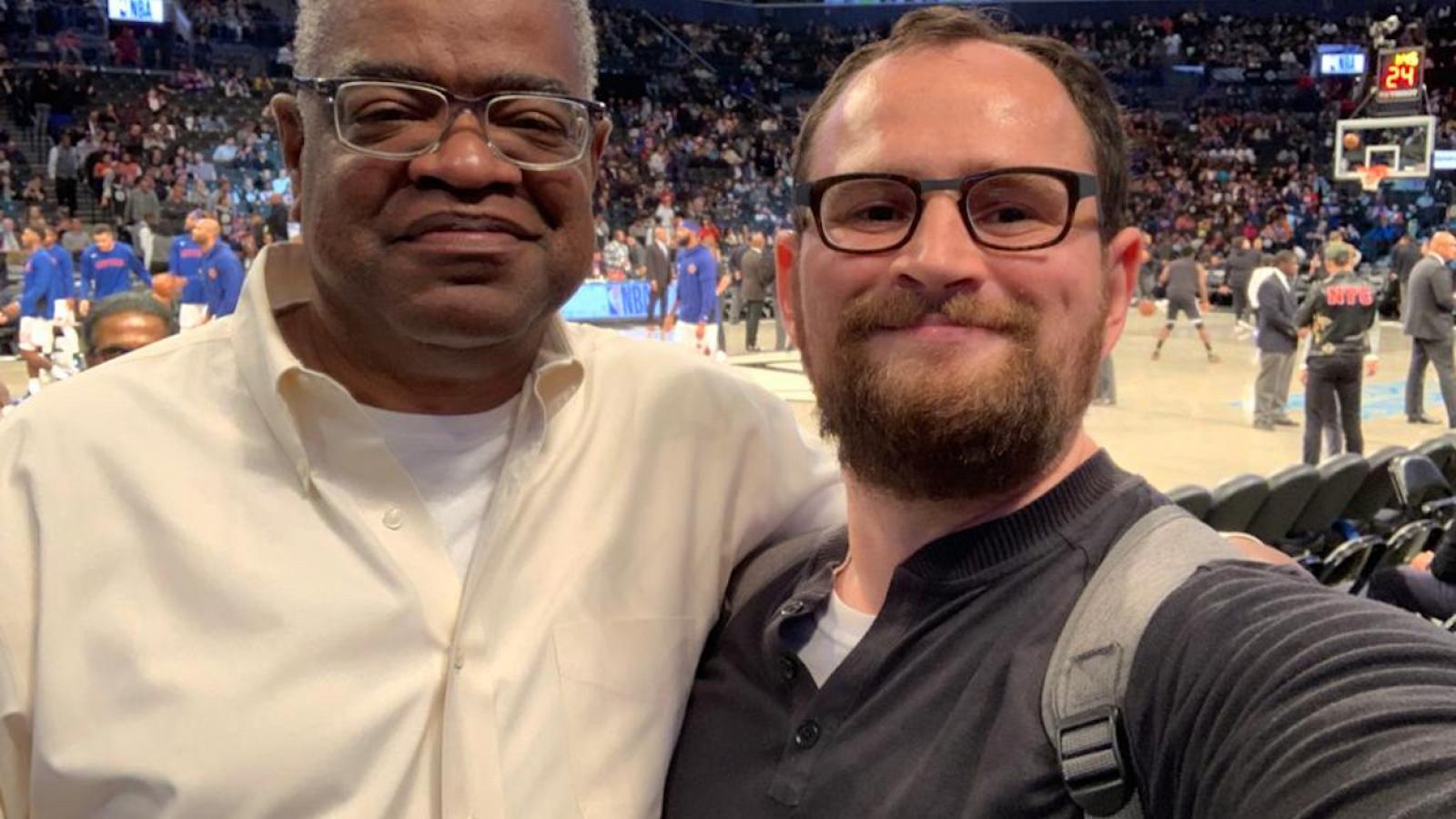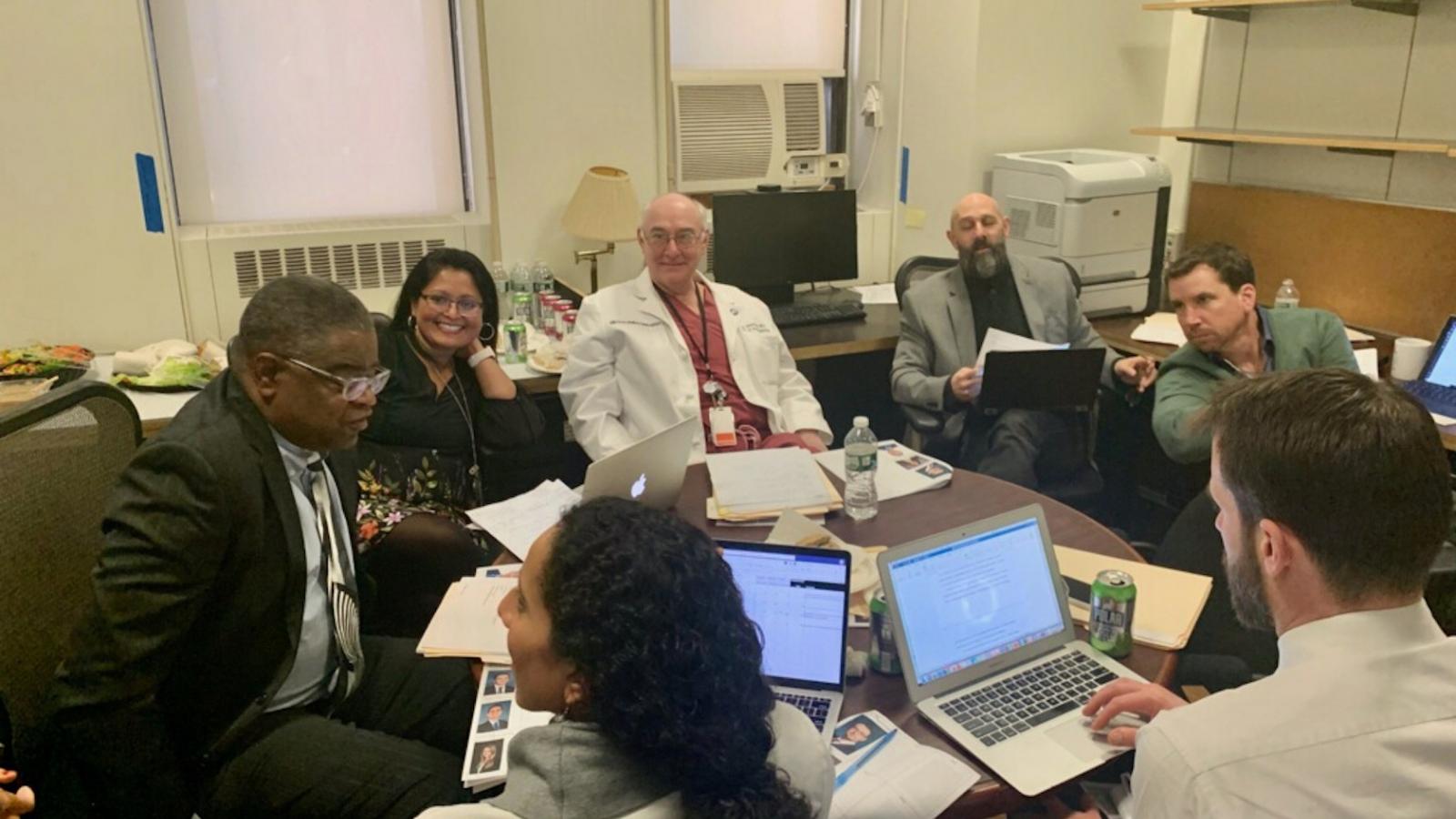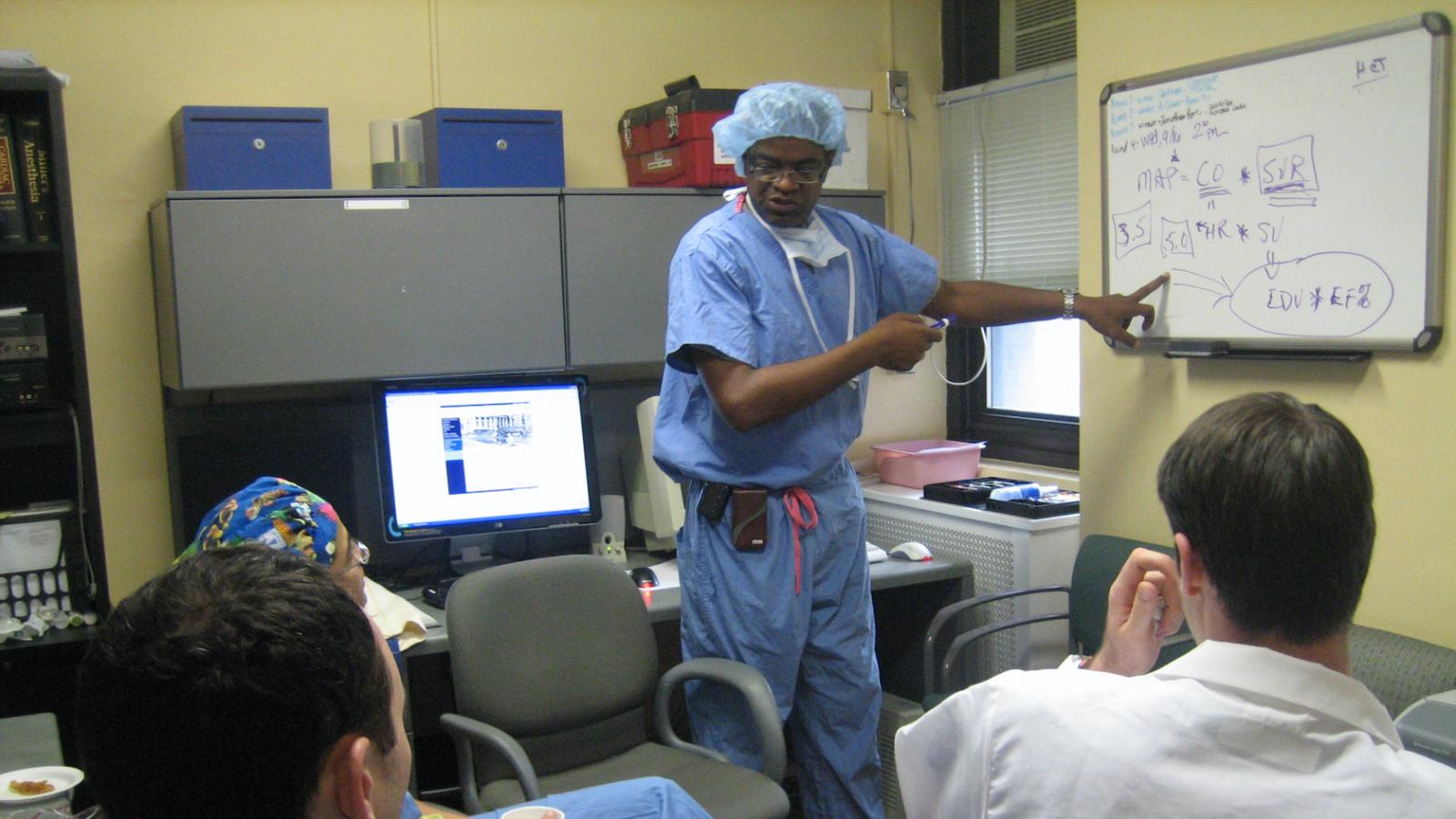In Memory of Dr. Jordan

Desmond Jordan, MD
Professor of Anesthesiology
Dr. Jordan was a distinguished cardiothoracic anesthesiologist and intensivist. He earned his medical degree from Brown University and completed an Internal Medicine residency at Harlem Hospital Center. He trained in anesthesiology, critical care medicine, and research at the Johns Hopkins Hospital, and joined the Department of Anesthesiology at the Columbia University Irving Medical Center in 1987.
As a clinician, Dr. Jordan was a trailblazer. He became the first medical director of the cardiothoracic intensive care unit at CUIMC when care guidelines still were undefined for heart-transplant patients on artificial life support. The protocols he established for the multidisciplinary care of these patients are still in use today. As an educator, he helped prepare scores of trainees in anesthesiology and critical care medicine. His teaching style was engaging and positive. He inspired trainees to challenge themselves; they could rely on his kind support. He was a pioneer in research as well: Dr. Jordan was at the leading edge of health information technology from its inception, achieving national and international stature in biomedical informatics. He also held leadership positions in the Congressional Black Caucus, at the New York State Department of Health, at NewYork-Presbyterian, and at several other organizations.
Desmond Jordan, MD, was admired throughout the institution and nationwide for his extraordinary expertise as an anesthesiologist and intensivist, as a gifted teacher and investigator, and as a trusted mentor and friend.
The Desmond A. Jordan, MD Annual Memorial Lecture
Dr. Jordan was dedicated to the highest quality care for patients and committed to excellence in education in anesthesiology and critical care medicine. To honor his memory, the Department of Anesthesiology has established an endowed annual lecture in his name. The Desmond A. Jordan, MD Annual Memorial Lecture gathers colleagues, peers, and the public for a presentation by a distinguished visiting professor. The lecture focuses on diversity, equity, and inclusion in anesthesiology and perioperative medicine.
This lectureship has been established in perpetuity, making Dr. Jordan’s legacy and memory a permanent part of the university and the community he served. The inaugural lecture took place on June 16, 2022. Read about it here.
If you would like to make a gift to the department, please reach out to Jamie Montgomery, Executive Director of Development.
To make a gift online, please follow this link and select "Anesthesiology General Fund."
Tributes
"Desmond was one of my most admired professors and valued colleagues at Columbia. I remember caring for a patient with him who had a complex illness and just being happy that they were still alive. After we had done our clinical work, he always spent more time with me and often left me with an equation to work out. He was the guy who went the extra mile, both as the doctor and as the professor. He was also innovative and spread the joy and adventure in pushing the envelope to do things better."
Pamela F., Menlo Park, CA
I was lucky enough to work with Desmond as a trainee and an ICU nurse. His knowledge, vision, approach to care and generous collaboration had a great impact on me and my work. He was a remarkable person.
Sarah R., Fair Lawn, NJ
This is indeed very sad news. I started working with Desmond in 1996 when I was still at McGill University in Montreal, and our collaboration continued for many years until he got sick. Even then, we continued our communication, although sporadically. He was an amazing man and a clinical champion of ICU! He will be missed. I will miss him.
Vimla P., New York, NY
"My favorite memory of Desmond was his telling me to walk faster for health reasons."
Richard F., Brooklyn, NY
"Here in the age of Zoom, the parts of my daily business that involve cardiologists, or Deans and Chairs, or any level of NYP, can be conducted with great efficiency while seated in front of my computer screen, and the absence of intimacy is often something to be grateful for. But the people we actually get to see, talk to, and touch every day have become precious. I have often said that the most intimate professional collegial relationships surgeons have are with anesthesiologists. A cardiologist can send me a case by phone or email, but an anesthesiologist stands in there with me through all the hours of every case. That helps explain why so many surgeons are missing Desmond Jordan. But that only starts to explain. Desmond was extraordinarily popular with everyone. With nurses, ICU staff and extenders, perfusionists. And outside our walls—Desmond served many years on the Cardiac Advisory Committee of New York State, along with forty-odd others from around the US. Every single member of the Committee has emailed me to say how much they will miss him. The Dean of the University of Nebraska became such a good friend that Desmond would pick him up at a NY airport and drive him to the meetings in Albany. Desmond’s clinical skill explains why he was President Clinton’s anesthesiologist. When NEJM celebrated its 200th anniversary they invited me to speak, hoping that would persuade Bill Clinton to speak. I told them that wouldn’t work, and offered something much better. Bill’s anesthesiologist spoke to a packed auditorium about his own emergency CABG. It was classic Desmond. Understated, but insightful, vivid, and very brave. Even the Boston crowd was riveted. As you all know by now, Desmond passed away very suddenly and unexpectedly. Struck down in the line of duty feels very 2020, and very different from receiving a notice 20 years after retirement. Suddenness can sound like a good deal when we’re contemplating the inevitability of our own departures. But it took away Desmond’s chance to tell everyone he loved how much he loved them. He was also denied the chance to charm, instruct, or amuse us with his own famous last words. Oscar Wilde allegedly said, on his deathbed, 'Either this wallpaper goes, or I do.' Desmond probably would have said something direct, sincere, and kind. We missed our chance to hear his last words, but more importantly, each of us missed our chance to tell Desmond how important he was to us. I had my chance on the morning of the day he passed away, while we were doing my case together. At the end, instead of saying, 'You’re important to me,' I probably said, 'See you later.' Now, none of us will…and that is our loss."
Craig S., New York, NY
"Dr. Jordan, I did one of my first cases as a fellow at CUMC with you. I remember it very clearly: you were tough and scared me for the first five minutes, but then you made me feel right at home all the way, all day, all year. Thank you."
John G., Geneva, Switzerland
"So sad to learn about Desmond. Desmond was an early adopter of informatics in clinical care and an excellent collaborator. On a personal level, he became my hero when he took over my mother's care when she was in the ICU over a lengthy period. He practiced his art with extreme dedication, skill, and conviction. My family and I credit him for saving mom's life while others passed her off as old and febrile. Because of Desmond, mom was able to witness the birth of 5 grandchildren before passing. I found Desmond to be an inspiration in many ways, and no doubt, he will be missed by the many people he touched throughout his life."
Rita K., New York, NY
"He was extraordinary. His clinical expertise was a byword; he was the doctor’s doctor. When there was a case that was particularly difficult, or particularly high profile, our surgeons chose Desmond as the anesthesiologist. When he won CUIMC’s teacher of the year it was because he understood that part of a resident’s soul that made her want to become a healer, and he could speak to that part. He was beloved by the nursing staff because they felt the intense respect he had for their wisdom and caring. He was admired by his colleagues in the OR and the ICU because he was such a good thinker — he had knowledge, but he understood that knowledge is a tool for solving problems. When I started with the Department of Biomedical Informatics in 1998, Desmond was always the only African-American in any meeting. He was a model of personal dignity. I always wondered if setting an example was a burden he placed on himself. As the only black man in the room, did he think he needed to set an example? This would have been terribly unfair. But Desmond had a gut-level understanding of the tension race creates in role playing. After all, his father was a cop, living and with his beat in Harlem. What could that have been like, having a father who had to mediate between roles of neighbor and enforcer? Desmond grew up with ambiguity. I think this led him to being determined to chart his own path and let the world accept him or not. That path included a commitment to dignity. Desmond had two daughters whom he raised as a single father. Dignity was the example he wanted to set for them. But I do remember the pride he felt when he was offered a chance to speak to the Black Caucus’ annual policy forum and had a chance to meet John Lewis, Charlie Rangel, Jim Clyburn, and some of the giants of the civil rights movement. He is one of the handful of physicians I’ve known who, at no point in his career ever had a priority that came before his patients — not his position, not his scholarship (which was considerable), not, to the occasional dismay of his friends, his own comfort. Every year, Desmond would travel to third world locations to assist in surgery on children. He had a broad definition of who were his patients. And as far as medical informatics goes, Desmond had a vision of huge breadth and humanity. The project we worked most closely on was less about computers than about our ability to actually communicate with each other in a way that is meaningful. He had published a study that demonstrated that when an anesthesiologist telephoned a nurse from the OR to the step down unit, he conveyed about 50 percent of the information the nurse needed to care for the patient, and the nurse retained about 15 percent of what was said. Desmond’s work focused on using technology to make a bridge that didn’t exist. That work, with automated decision support, was funded by NASA to prepare for the first manned mission to Mars. Desmond’s work will ride with those astronauts the day that mission takes flight. It was an honor to know him. I will miss him."
David L., New York, NY
"I am so sorry to hear of this news. Desmond was an innovator and a leader who cared very much about patients and colleagues. We have seen such an outpouring of support and emotion from those who knew him. I wish the best to his family, which he clearly held precious."
George H., New York, NY
"Desmond was very active during my years as chair of DBMI [Department of Biomedical Informatics]. A witty and engaged collaborator, he participated fully as a faculty member even though his primary appointment was in Anesthesiology. He worked well with students and brought superb clinical acumen, as well as a detailed grasp of the technology, to all his projects. I remember being very sad when I heard about his illness after we had left for Arizona, but I was relieved when he was able to return to work. This news today is doubly sad. DBMI was lucky to benefit from his involvement, intellect, and collegiality over many years."
Ted S., New York, NY
"I'm very sorry to hear this. A fellow Brown alum, he was a true pioneer of "computers in medicine" back in the 1990's - always full of energy and ideas. We only had one publication together but our interactions were always stimulating and inspirational as we worked to build innovative, interoperative clinical information systems. He will be missed."
James C., Birmingham, AL
"Dr. Jordan was a genius, a quiet, unassuming genius. He had a brilliant mind with a dry sense of humor. Once upon a time, Dr. Jordan sponsored a summer internship program for high school students every year. In the summer of 2009, I also had a few high school student interns. One day, Dr. Jordan suggested that we should have our high school students socializing with each other. When I told him that each intern would give a presentation of his or her project at the end of the internship program, Dr. Jordan said we should join hands and hold the presentations together. We had about 10 students and would need to find a conference room for the event. Dr. Jordan told me not to worry and he had a good venue. When the day for presentations came, Dr. Jordan led us to the first floor of the Milstein Building. After a few turns, we were greeted by a receptionist, who guided us to a spacious room with a long table, leather chairs, posh furniture, and new plasma monitors. It is the meeting room for the board of trustees. Everyone was in awe of the stately magnificent room. I had never been to the board room before. I asked Dr. Jordan how he got the permission to use the board room. He chuckled and mused in his baritone: When you help high school students, their parents would do anything for you. Dr. Jordan was absolutely right. It is a lot of work to teach a teenager. But it is also a lot of fun. More importantly, it is extremely rewarding to make a positive impact on a teenager, which often lasts a lifetime. Thanks to Dr. Jordan, I have been hosting a few high school and college students every summer ever since."
Guohua L., Suffern, NY
"Besides his professional contributions, I remember having great conversations with him about parenting which made it clear how much he valued and loved his children."
Suzanne B., New York, NY
"Dr. Jordan was a deep soul, a profound thinker and teacher, and a thoughtful clinician. He was one of a kind! I was his fellow in CT ICU on 9/11 when he found out that he lost a close relative; he continued to take his call that night. He was that kind of a clinician...an inspiration to all of us. May he rest in peace."
Shahla S., Newton, MA
"It’s difficult to distill down everything Desmond meant to me in a single post. His teaching style was so effective because he pushed you to figure things out for yourself, instead of spoon-feeding you the answers. Always the consummate professional, I can not recall a time I saw him rattled or lose his composure - even in the most dire of clinical scenarios. Perhaps what I will remember most is his famous “side-eye,” of which I was on the receiving end of more times than I care to remember. He had a way of calling me out on my BS without making me feel belittled or disrespected - truly a special gift. We are all made better by having had the opportunity to know him, and his presence in this world will be sorely missed by all."
Lance R., San Francisco, CA
"I knew Desmond from Dwight Morrow High School. We were in the marching band. He played a mean french horn and was the Drum Major when he was a senior. He was able to throw the mace with finesse to incredible heights. What a metaphor for his life. That is how I will remember him."
Debra K., Plainview NY
"Dr. Jordan stimulated patient management introspection and reflection that encouraged trainees to critically evaluate and improve their practice. After inducing cardiac surgery patients, he would state, "That's your induction?" and then just stare at you. It wasn't supportive or critical but encouraged you to evaluate your decisions and techniques, a necessary skill for life-long learning and improvement. In the ICU, people packed around him to glean his insights on technology and physiology...He is an example of one of the many unique, independent, and wise faculty and staff at Columbia."
Josh B., Nashville, TN
"Desmond was a giant in the world of cardiothoracic anesthesia and ICU care. I worked with Desmond during my fellowship at Columbia, and it was evident that his impact on the health system was pervasive from the ORs to the ICU. He was a role model not just for his clinical work as a physician, but as an educator and a compassionate care giver. I ALWAYS looked forward to the days we worked together in the OR or when he was faculty in the ICU. I knew I would be challenged and supported. He very simply inspired me to be a better doctor. I think about him all the time, in life and in his death. When faced with a difficult clinical situation, I have frequently thought, 'What would Desmond do,' and try to tap into my best inner Desmond to get me through. I will miss him dearly."
Erin G., Cincinnati, OH
Support His Legacy
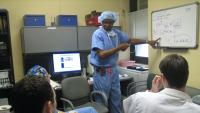
Ensure Dr. Jordan’s legacy in the university and in the community by donating to establish the Jordan Memorial Lecture.
Remember Dr. Jordan

To honor the memory of Dr. Jordan, please send your remembrances and any other written materials or images to share with others in the community.
